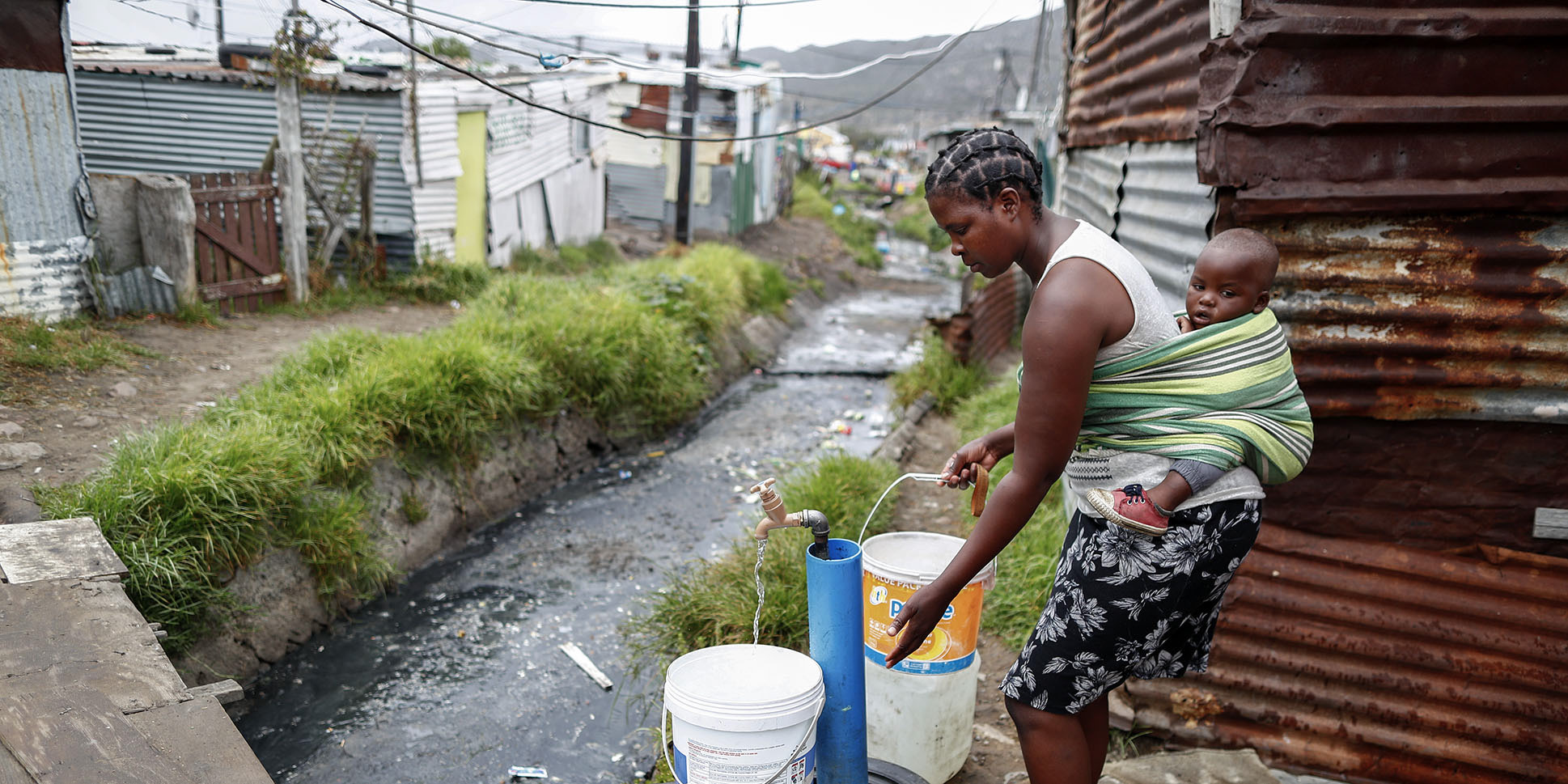The average South African CEO takes home as much as 461 black women from the bottom 10% of earners in the country, while on average a black woman earns a quarter of her white counterpart. This is according to an Oxfam South Africa report released on Tuesday, 24 November which says black women are at the centre of the intersecting axis of inequality perpetuated by race, class, education, gender and employment.
In a statement describing the report, Reclaiming Power: Womxn’s Work and Income Inequality in South Africa, Oxfam SA said: “This report is the result of many years of working to understand poverty and inequality in the South Africa economy and seeks to expand the global conversation by looking at South Africa’s specific context of inequality and its structural drivers. Through our programming work, Oxfam South Africa has been confronted with poverty and inequality’s manifestations in South African society. This motivated us to develop a comprehensive exploration of how inequality in the South African economy continuously places black women at the bottom, in the labour market and overall economy.”
According to the report the average South African CEO “takes home as much as 461 black women from the bottom 10% of earners. Labour market inequality is a key driver to stubborn gender, race, income and wealth inequality in South Africa.” Even more staggering is that, according to the World Bank, the richest 20% of people in South Africa control 70% of the country’s resources.
Opening the launch, Oxfam SA executive director Siphokazi Mthathi said the report was meant to be used as a tool for movement building and mobilising against inequality. She said one of the things Covid-19 had done was throw a spotlight on accepted orthodoxies that have shaped our economy and society and which now need to be called into question. Our economic system was supported by the unrecognised labour of mostly black women
Inequality Programme lead Dr Basani Baloyi explained that one of the things that disproportionately affected the inequality faced by black women was their role as head of single-parent households as well as their extended family responsibilities. She said black women often bore the burden of unpaid care work for their families, preventing them from participating in the economy. It showed that on average unemployed women did 323 minutes of care work versus unemployed men who did 154 minutes, and even when both men and women were employed women still did the majority of care work - 190 minutes versus 74 minutes done by men.
On average households headed by black women had an income of R58,000, those headed by black men had R75,000. White woman-headed households had R258,000, while white male-headed households averaged R396,000.
Baloyi also said education played a key role in the kind of employment women were likely to get, with research showing that one out of every 10 black women had tertiary education, a further factor affecting racial and class inequalities in South Africa. South Africans with tertiary education generally earned R36 an hour compared with those with only a matric who earned an average of R12 an hour and those with Grade 9 education earning R6.
The report says: “Labour market inequalities are one of the key drivers of wealth and income inequality in South Africa. Wage inequality accounts for between 80% and 90% of overall inequality.”
The report recommends:
- A living wage and a cap on maximum income;
- A macroeconomic policy that serves employment creation and inequality reduction;
- Fiscal tax justice;
- Tackling political and corporate capture;
- Gender-mainstreamed industrial policies;
- Enforced labour protections for democratic, nonsexist and fair workspaces;
- Reverse hostile austerity-based labour market reforms;
- Protections and fair access to safe markets for informal sector workers;
- Social protection for all;
- Womxn’s unpaid care work and paid work must be recognised, reduced, redistributed, as well as represented in policy decision making;
- Gender-accountable and just budgeting and planning.
The report is supported by an exhibition showing the post-apartheid difficulties women endure and which hinder their gainful participation and inclusion in the economy. It uses photography, paintings, installations, stencil art and mixed media to unpack issues of race, class and gender.
The exhibition, which is based at the worker’s museum in Newtown, Johannesburg, features works from artists Mary Sibande, Sethembile Msezane, Thandiwe Tshabalala, Lucas Ledwaba and Sydelle Willow Smith, among others. Mthati said the exhibition was an attempt to engage the report with new audiences.
“Ending the cycle of deprivation and inequality in South Africa is a challenge for all of us. All of our stories are important; all of our voices deserve to be heard; and we are more likely to be heard when we speak together as one,” said Mthathi. DM/MC

Like what you're reading? Sign up to the Maverick Citizen newsletter and get a weekly round-up sent to your inbox every Tuesday. Free. Because paywalls should not stop you from being informed.





